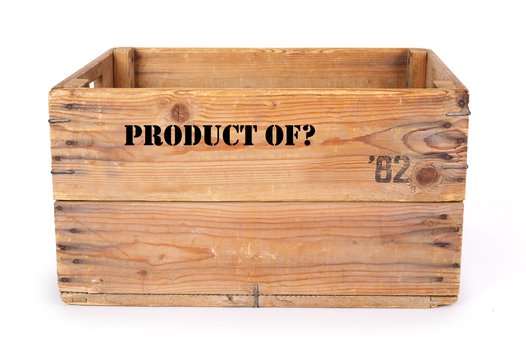James Crawford, the acting associate vice-president of operations with the Canadian Food Inspection Agency (CFIA), in a July 25 article, told The Globe and Mail that the agency receives "about 40 complaints a year about possible food misinterpretation."

A discovery of a box of peppers that was labeled as Canadian products but turned out to be products of Mexico, led the CFIA to investigate the supplier, Mucci Farms.
The investigation showed the company had been marketing some imported products as Canadian. Mucci Farms was eventually fined about $1.5 million, but those with legal backgrounds say Canada’s laws need to be reviewed.
“Everything we do in Canada is reactive,” he said. “We have very poor laws, compared to other countries. And we haven’t had any government involved in the longest time – I’m talking decades – willing to provide the resources to law enforcement to do anything about counterfeiting,” Lorne Lipkus, a lawyer with experience representing companies in intellectual property litigation, told The Globe and Mail.
In some cases, food fraud occurs because there’s no attention to detail.
The operator of the Wildcat Café in Yellowknife, Northwest Territories, was marketing pike perch – also known as zander and a product of Kazakhstan, as local Great Slave Lake Pickerel.
When questioned, Sato Chankasingh told CBC that he doesn’t read the labels on the boxes.